di Valentina Durante
[ITA] [ENG]
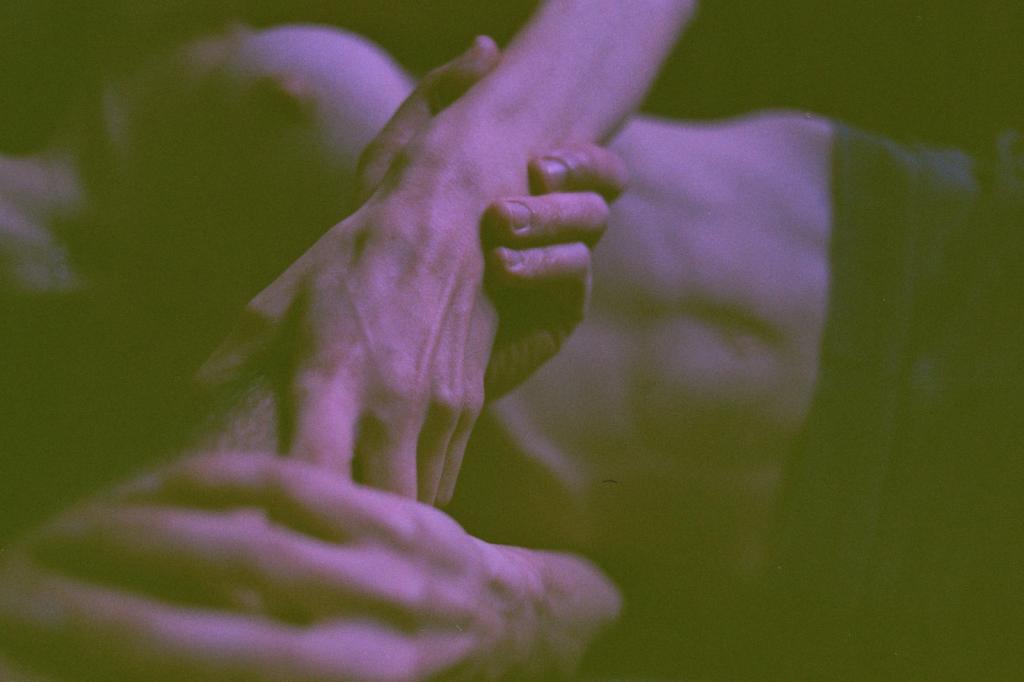
Neulengbach, 29 aprile 1912
Caro Egon,
è così strano scriverti già sapendo che non leggerai. Affiderò questa mia a Wally, ma sono certa che la signorina Neuzil non esaudirà il mio desiderio che tu la riceva, poiché contrasterebbe con il suo, altrettanto profondo, di tenermi lontana da te. Sono stata a casa vostra due volte dopo il tuo arresto (ti prego, non adirarti). La prima, lei era ancora molto scossa, e prostrata, e quasi fuori di sé, tanto che neppure mi ha permesso di entrare. La seconda ha acconsentito a parlarmi, ma solo perché pensava che avessi qualche notizia utile sulla denuncia. Le ho ripetuto quello che già vi mandai a dire tramite Eulalie, e cioè che la denuncia è stata ritirata, che il ritardo è da imputarsi a banale dimenticanza, e che mio padre ha fatto tutto quanto in suo potere affinché il detestabile malinteso si risolva alla svelta. Eppure, Egon (e perdona la mia audacia nel parlarti così), il malinteso è sostenuto da tutto ciò che gli sta intorno: i tuoi disegni, innanzitutto, e poi la vostra particolare condizione (tua e della signorina Neuzil, intendo), e tutte quelle bambine in giro per casa… Mio padre può anche aver appiccato il fuoco alla prima foglia secca ma non è colpa sua se ai vostri piedi c’è un bosco intero, Egon, pronto a ardere. Però ripeto: tanto è stato fatto, e di più si tenterà nei giorni a venire.
Mio padre sostiene che ti porteranno a St. Pölten per il processo; lui di certo verrà chiamato a testimoniare, e forse anch’io, e per quanto lui non sia d’accordo: vuoi per la mia età, vuoi perché teme che finisca solo per peggiorare le cose – tanto disgraziato è stato il mio contegno fin qui. Però dimmi, è così dura lì dentro? Non mi riesce neppure di immaginarlo. Wally ha detto che le hanno concesso di vederti e che ha potuto portarti l’occorrente per dipingere: altrimenti “non saresti sopravvissuto”. Ha detto che se ti fosse imposto di scegliere, senza esitazioni ti toglieresti l’acqua e il pane dalla bocca in cambio di una matita e di un po’ di carta. Mi chiedo cosa disegnerai: i tuoi compagni di cella? (in realtà, la signorina Neuzil mi ha spiegato che sei solo). O forse carabinieri e secondini: “le più riprovevoli emanazioni dell’autorità”, come li definisce Eulalie, senza rendersi conto che i suoi modi non sono poi tanto diversi dai loro. Wally mi ha raccontato del pavimento sporco e di come sei stato umiliato. Dice che non hai modo di raderti e neppure di lavarti come si deve. Spero tu ti renda conto, Egon, di quanto lei tenga a te, al punto da subordinare la sua felicità alla tua – quali che siano le condizioni. Sono certa che presto ti farà di nuovo visita e allora, se solo volesse, se lei fosse un po’ buona con me, porterebbe con sé anche questa lettera. Ma se questo realmente accadesse (lo ritengo improbabile, sappilo!), scriverti come sto facendo ora, con tanta libertà, sarebbe doppiamente strano perché presumerebbe una confidenza fra noi che in così poco tempo non ha potuto crearsi. Sto dunque solo parlando con me stessa? Sì, allo stesso modo dei matti e dei santi. E anche degli artisti, vero? Perché io te l’ho visto fare. Più di una volta io ti ho sentito dire, fra te e te: Sono così ricco che devo continuare a donarmi.

E comunque non è stato solo poco tempo. Non per me, che ho cominciato a gironzolare intorno a casa vostra fin dal giorno in cui vi siete trasferiti qui a Neulengbach. Quella donna! pensavo guardando Wally. Avrà tre o quattro anni più di me, ed è già così indipendente da vivere da sola con il suo uomo. Desideravo la sua stessa pelle, i suoi stessi capelli rossi, quella sua figura snella, dritta e aggraziata di giovane betulla… Volevo essere lei e superiore a lei: cosa poteva avere la signorina Neuzil più di me, a parte quel suo scandaloso coraggio? Mi fossi proposta anch’io come modella, certo che mi avresti presa: sarei diventata una delle tante bambine alle quali apri la porta del tuo studio. Avrei allargato le gambe come mi avresti chiesto di fare, e sollevato il vestitino come avresti comandato tu, e mi sarei toccata ubbidendo alla tua voce senza sapere bene cosa stessi facendo, solo perché la tua voce è dolce e i tuoi occhi sono belli e per la fetta di pane e miele che mi avresti promesso. Ma avresti mai accettato, Egon, di fare un discorso con me? Uno di quelli seri, sulla vita, la sofferenza, l’amore, Dio, l’arte… Certo che no, perché Tatjana von Mossig è una stupida. È solo una ragazzina viziata che, non appena vede che il mondo non sta girando a suo comodo, strepita e scalcia da brava piccola isterica.
Il gesto con le forbici, quello è stato in effetti stupido e ora me ne pento. E non chiedermi cosa avessi realmente in testa perché non te lo direi: non mi sento in dovere di essere sincera con te, almeno non prima di aver guadagnato il tuo rispetto. Lo so cosa avete pensato tu e Wally, poi, cosa vi siete detti, la sera, finalmente nel letto da soli e abbracciati stretti e mentre vi accarezzavate: è talmente sciocca che neppure le riesce di ammazzarsi sul serio. A casa, mia madre ha fatto subito sparire forbici e coltelli per paura che lo rifacessi, e Eulalie non si è astenuta dal commentare: “Fa bene, signora: quando una è debole di nervi, non si sa mai cosa può succedere”. Le hanno ordinato di non perdermi mai d’occhio, ma poiché in Eulalie l’avidità supera qualunque altro lato del suo pur rigoroso carattere, non è stato difficile corromperla e potermi trattenere da Wally un intero pomeriggio (la seconda volta, quando lei ha acconsentito a farmi entrare). Mia madre è una formidabile bigotta e ovviamente dice che la signorina Neuzil “è una demi-mondaine”. Sai che quel giorno a Vienna, Wally mi ha portato al Fledermaus? Conosceva tutti e io avrei potuto sentirmi a disagio e ancora più insignificante di quel che già sono (all’inizio infatti l’ho temuto), e invece era come se un debole chiarore promanasse anche dalla mia persona per il solo fatto che stavo insieme a lei. Chiunque avrebbe potuto scambiarmi per un’adulta. Il cabaret era delizioso con quel pavimento a mattonelle bianche e nere, tanto che sembrava di passeggiare in punta di piedi sopra enormi tastiere di pianoforte, sollevando musica a ogni passo. Ero entrata in un mondo più incantato di quello delle fiabe, e il vero incanto era che sapevo benissimo che non mi sarei risvegliata, che la signorina Neuzil mi stava guardando con quei suoi occhi luminosi e che in definitiva tutto era vero.
Ma la decisione io l’avevo presa già prima. Quando siamo scese dal treno, e Wally mi ha offerto il suo braccio perché camminassimo vicine, e io ho sentito la sua pelle profumata così prossima a me, ed era un odore dolce ma anche con qualcosa di selvaggio e terribile, lì ho capito che non avrei mai permesso – mai – che mi si portasse da mia nonna. Ho pensato: non è giusto che solo la signorina Neuzil possa decidere della sua vita. La nonna non è mia madre e Vienna non è Neulengbach, ma né l’una né l’altra sono la libertà per come io l’ho vista in te e in Wally e è una libertà alla quale io pretendo, esigo di aver diritto. Rifugiandomi da mia nonna (e dando per scontato che lei non m’avrebbe rispedita a casa), non avrei fatto altro che allungare la già infinitamente insopportabile lista delle persone che possono disporre di me, come se non solo il mio corpo (un corpo che non è più di bambina, Egon!), ma persino il mio spirito fossero di loro proprietà, e io una poppante imboccata a loro gusto e sentimento.
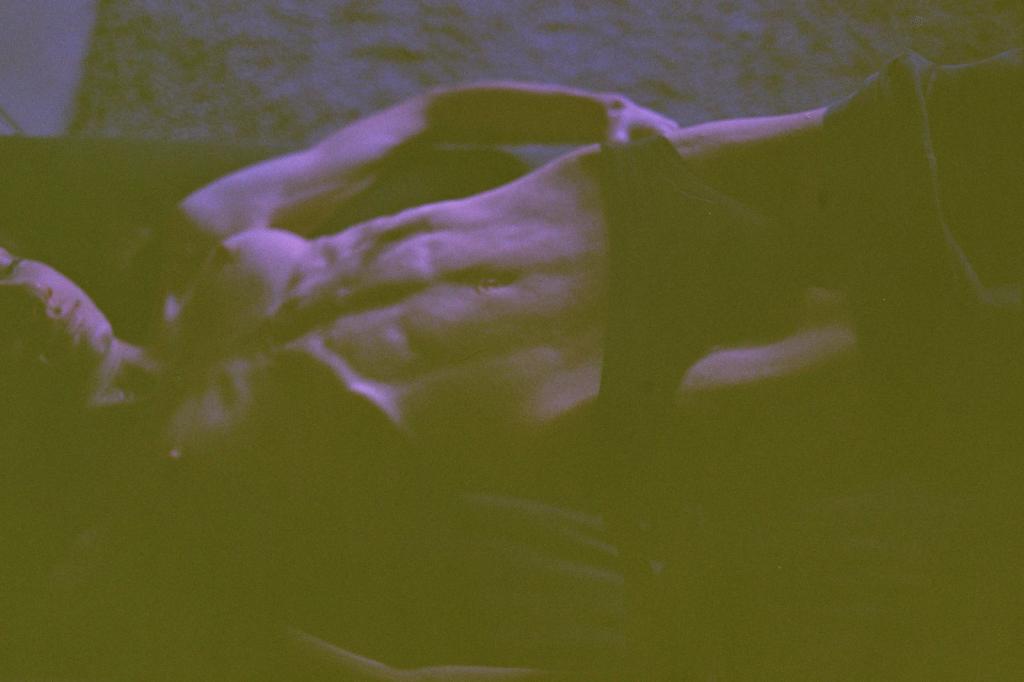
La prima volta che ho osato farmi avanti con te (ma l’ho detto: ti osservavo nascosta da giorni) mi sono resa conto che basta pochissimo perché una persona si dimentichi di vivere nel senso pieno del termine – e l’età in definitiva non conta. Ti rannicchi nella campana di vetro che hanno costruito per te, beandoti dello splendore dei ninnoli che ti circondano, e neppure ti accorgi che continui a fare il gioco di bambole che ti hanno insegnato da piccola apposta perché smettessi di crescere. Possono concederti di avere una statura più alta, e fianchi ben formati, e un seno fiorente sotto il corpetto, ma sono solo trucchi per preservare l’intoccabilità del gioco, che può continuare e continuerà, sotto la guardianìa dell’uomo che diventerà tuo marito. Quel giorno, avevo portato con me il catalogo del Künstlerhaus: mi occorreva un pretesto, uno qualsiasi, nella biblioteca di mio padre avevo trovato quello e benché non fossi sicura che si trattasse del pretesto giusto, ho rischiato. Chiederti se anche tu avresti esposto lì poteva essere una domanda sciocca, ma tu l’hai ritenuta addirittura inqualificabile; mi hai fatta sentire insignificante come mai mi era successo, soprattutto perché nel rispondermi hai usato quella cortesia affettata che si riserva ai malati di mente, ai vecchi o per l’appunto ai bambini. Era già abbastanza umiliante così, ma la signorina Neuzil ha voluto metterci del suo: ha sorriso in quel suo modo da fata, mi ha accarezzato la testa e poi si è chinata su di me, mi ha sfiorato il collo con le labbra dicendo: “Non badarci. È solo che al Künstlerhaus ci sono i pittori di routine, e Egon li detesta”. Ero furibonda con entrambi, ma non mi sono mossa. Il mio cuore non sapeva decidersi fra l’imbarazzo e la tenerezza. Era come avere dell’ovatta nelle orecchie e tra quella e il mondo, intrappolata nella soffice e calda bambagia, la voce della signorina Neuzil che continuava a propagarsi in deboli onde, uno sciacquio leggero che mi avvolgeva tutta.
I giorni seguenti, ogni volta che tornavo e mi avvicinavo al cavalletto, mi concedevi due o tre frasi distratte; per parte mia, sapevo che se fossi stata zitta ti avrei solo fatto un favore. Non me ne andavo perché la presenza della signorina Neuzil mi faceva capire che potevo restare. Oh, certo, se lei avesse sospettato che di lì a pochi giorni sarei piombata in casa vostra nel mezzo di una bufera, avrebbe usato con me un atteggiamento ben diverso. Ma non lo ha fatto, e neppure quella sera ha puntato i piedi perché me ne andassi. Ha cercato di convincermi con le buone, di farmi capire che ne sarebbe sorto uno scandalo e che mio padre mi avrebbe tirata via di lì con la forza in capo a ventiquattr’ore e che, in definitiva, tutti ci avremmo rimesso e tu più di tutti; ma non è stata troppo dura e alla fine, evidente com’era che non poteva cacciarmi sotto la pioggia scrosciante, mi ha accolta senza malumori nel suo letto. Quanto a te, mi rivolgevi il tuo solito sguardo infastidito, tranne che ora vi filtrava un’espressione diversa, della pena, credo, il che dal mio punto di vista era forse peggio. Tu non lo sai, ma anch’io ho letto Rimbaud! So del soldato morto nella valle, pallido nel verde letto in cui la luce piove. Ho la mente piena di pensieri sul mondo che si accalcano uno addosso all’altro con una forza incomparabile, e che tu neppure sospetti: non puoi immaginare quel che c’è nella mia testa, Egon, se mi mortifichi prima che io possa esprimerlo, e a tal punto che io non m’azzardi più a esprimerlo…
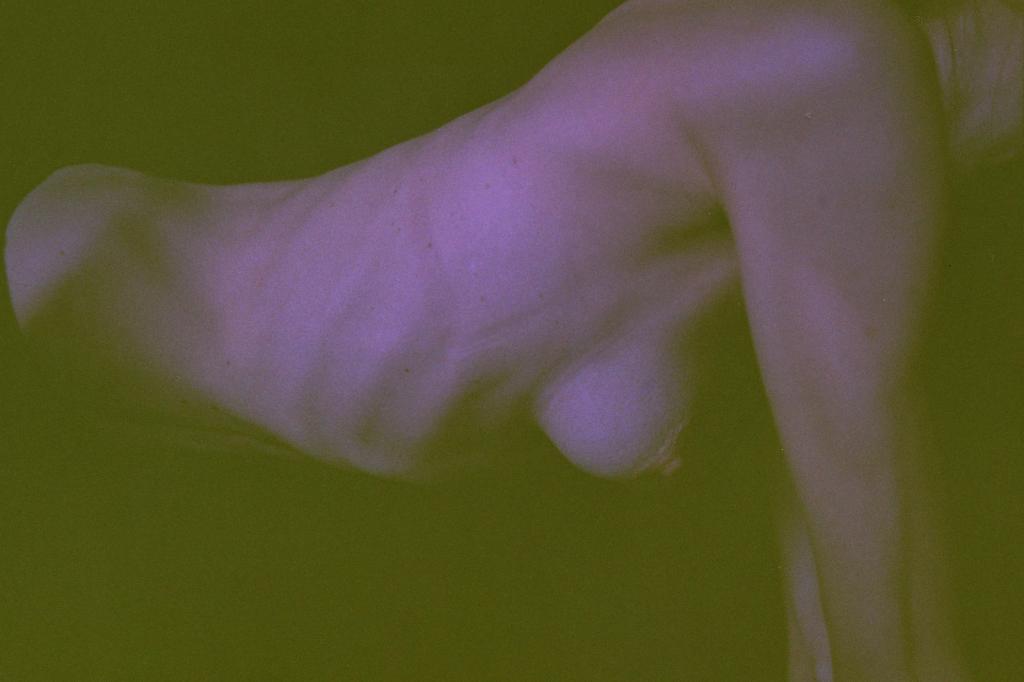
“Perché rinunciare a Vienna per tutto ciò?” ti ho chiesto. E per “tutto ciò” intendevo la vita a Neulengbach, tanto deprimente che una ragazzina è costretta a fuggire di casa nel mezzo di una tempesta per dirsi che così sta cominciando a vivere. Ma per te, a Vienna domina l’ombra. “La città è nera” mi hai detto, “tutto è sotto il segno della norma”. Sappi, Egon, che io sarei disposta a vivere cento giorni e cento notti in quella Vienna umbratile e nera, se solo potessero essere come l’unico giorno e l’unica notte che ho trascorso lì insieme alla signorina Neuzil. Mi hai detto che vorresti andare nella Foresta Boema, perché hai bisogno di vedere cose nuove e studiarle: “Voglio gustare acque scure, vedere alberi scricchiolanti, venti selvaggi, voglio osservare stupito marce recinzioni di giardini nel loro essere sempre vive, sentire giovani boschi di betulle e foglie vibranti, voglio vedere luce, sole, e alla sera godermi le umide valli verdeazzurre, seguire il luccichio di pesci dorati, veder crescere nuvole bianche, vorrei parlare con i fiori…” Ma io so già cosa vedo, Egon. So, per esempio, che ci sono colori perfettamente, radicalmente innocenti, e non importa cosa tu faccia loro. Il colore degli iris, quel viola carnoso stillante rugiada nelle albe tiepide di maggio: potresti mai agire qualcosa contro di lui? O lui qualcosa contro di te? È pura vibrazione vellutata. Hai notato che non esistono uniformi di eserciti del colore degli iris? O almeno, io non credo che esistano. E neppure poliziotti. I due che ti hanno arrestato avevano vestiti colorati, mi ha raccontato Wally, e bottoni luccicanti, ma scommetto che nessun maestoso iris sbocciava sul loro petto. Credo che se tutte le cose del mondo fossero dipinte di quel colore, gli uomini non avrebbero più nulla di cui temere e tu non sentiresti il bisogno di andartene altrove, neppure nella Foresta Boema.
Mio padre dice che scoppierà una guerra. Presto: fra tre, quattro anni al massimo. Lui è stato Ufficiale della Marina e non parla di queste cose a cuor leggero. Poiché lo so, mi rifiuto di ascoltarlo. Mi chiudo le orecchie con le mani e scuoto la testa e recito fra me e me una qualunque sciocchezza, per esempio le filastrocche in francese che canticchia sottovoce Eulalie, sculettando, quando pensa di non essere vista: Un, deux, trois, je m’en vais au bois. Quatre, cinq, six, cueillir des cerises… Se ci sarà una guerra, Egon, so che moriremo tutti. Ne sono certa, ma io non voglio morire perché ho solo quattordici anni (anzi, al momento neppure) e nella vita vorrei prima diventare qualcosa. Magari un’artista, perché no. Riuscire a guardare la signorina Neuzil come riesci a guardarla tu, nello stesso tuo modo ma non attraverso di te, saperla vedere, forte della tua stessa abilità di pensiero. E poi sapere che lei lo sa, che Wally capisce il suo essere vista da me in quello specifico modo (è stata lei a spiegarmi della scissione dalla Künstlerhaus, e di Klimt, e del perché quel catalogo ti abbia fatto così irritare).
Ha detto che lì soffri come un cane e che questa esperienza – lei ne è convinta – ti cambierà per sempre. Comincerai a odiare, Egon? Allora la tua arte finirà per rattrappirsi, come un pezzo di carta già strinato dal calore sul quale la fiamma si espande ormai inesorabilmente. Lo so: a te indigna di essere stato trattato in un modo tanto ingiusto. Similmente furono ingiusti a Krumau, costringendo te e la signorina Neuzil a andarvene. Mio padre dice che nulla come la certezza di subire ingiustizia rende gli uomini schiavi di loro stessi; non ci si sentirà mai adeguatamente risarciti, perché nessun risarcimento potrà ripristinare la condizione antecedente al danno.
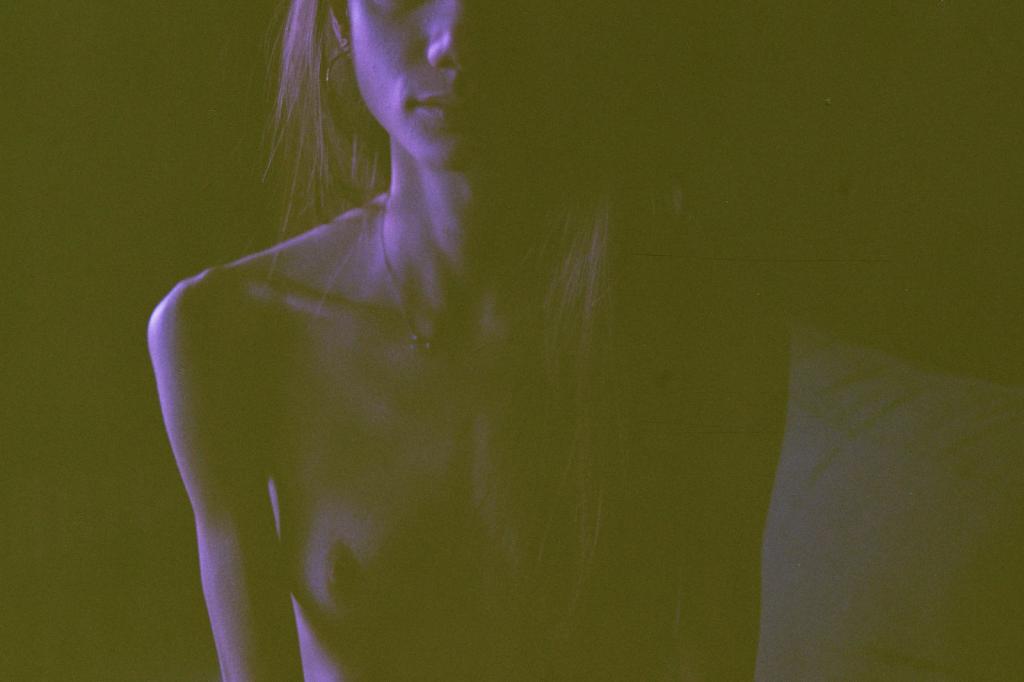
Quando quella mattina ho visto arrivare mio padre (ero nella camera che dà sul giardino; tu in cucina, al solito davanti al cavalletto, con Wally inginocchiata accanto che teneva la guancia appoggiata sulle tue cosce), ho lanciato un grido. Tu sei uscito per parlare con lui; intendevi chiarire subito, Wally ti è corsa dietro, vi preoccupava solo di evitare lo scandalo. Ai vostri occhi, io ero scomparsa. Ma ero sempre lì, Egon. Me ne stavo con quelle forbici in mano, non sapendo dove m’avrebbe condotta una disperazione tanto orgogliosa, e intanto guardavo lei: la ragazza nuda con le cosce aperte. Non è uno dei ritratti di Wally – i capelli neri non sono certamente i suoi – eppure mi dico che solo la signorina Neuzil potrebbe stare davanti a te in quel modo. Un’altra Wally, dunque? Una Wally come vista in un sogno, in uno dei tanti possibili sé. Trasfigurata dal sogno, lei avrebbe potuto essere qualunque cosa – un fiore di campo, una rupe, una nuvola di passaggio, uno degli alberi di quella Foresta Boema dove tanto vorresti andare – ma Wally è Wally: a lei non è dato di stare se non nel gruppo delle piene di grazia. Quella posa era così indecente… Lei si accarezzava il sesso con le dita, lo solleticava, ne provava evidente piacere. Il suo pube era un ciuffo nero, più scuro e selvatico dei capelli, e sotto quel groviglio attentamente dipinto si spalancavano le grandi labbra che avevi colorato di un arancio così intenso che tutto l’insieme – non solo quella vulva palpitante, ma l’intero suo corpo nudo, i piccoli seni con i capezzoli rosa eretti e l’unico, solitario occhio visibile quando l’altro era coperto dal lembo di stoffa nera – era sguaiato e indecente e aggressivo. A malapena mi resi conto delle mie gambe che si muovevano, della mia mano che afferrava le forbici e della lama che, piano piano, premeva sul polso mentre quel sesso di donna, il sesso di Wally Neuzil, mi puntava. Un sesso per niente invitante, pensavo, come non sarebbe invitante una pianta carnivora che spalancasse la bocca pronta a inghiottire un insetto, se a te fosse capitato di essere quell’insetto. Poi ho visto la mia pelle di latte incidersi, e il segno del taglio colorarsi rapidamente di rosso.
E comunque ora è passata, Egon. Mio padre ha capito di quale matta e meravigliosa caratura è fatta sua figlia, e in fin dei conti a me basta questo: che mi si permetta di volare, quando sarà il mio momento. Non credi anche tu che una come me non dovrebbe starsene con la faccia nel fango, con la faccia nella terra? Piuttosto, mi dico, meglio da sola. Sola, Egon, ma nel mio grande splendore.
La tua amica e sorella – se mai lo vorrai.
Tatjana
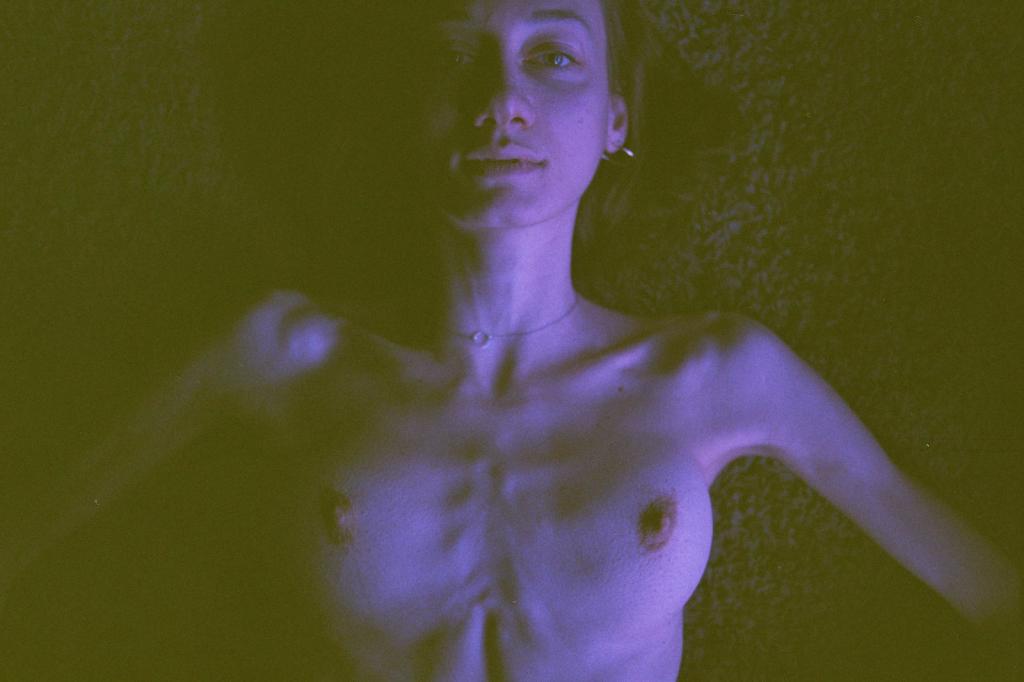
Fra le donne che hanno avuto un ruolo nella vita di Egon Schiele (1890-1918), la presenza di Tatjana von Mossig è stata fugace quanto il passaggio di una meteora. Figlia di un alto dirigente della Marina, la non ancora quattordicenne Tatjana provocherà l’arresto del pittore, accusato di sequestro e seduzione (se non addirittura di stupro). Ma andò veramente così? In realtà, di sequestro mai si trattò dato che fu Tatjana stessa a presentarsi da Schiele e dalla sua modella e compagna Wally Neuzil, in una notte di tempesta, dopo esser scappata di casa. Quel che sappiamo è che il Capitano von Mossig si mostrò ragionevole e ritirò la denuncia. Ma Schiele non era visto di buon occhio in paese, a causa dei suoi dipinti e della condizione di “concubinaggio” in cui viveva con la Neuzil: l’accusa che alla fine gli valse una detenzione di oltre tre settimane (“ventiquattro giorni o cinquecentosettantasei ore! – Un’eternità!”) fu determinata dall’“esposizione di materiale pornografico in luoghi accessibili ai minori”. In tutto ciò, Tatjana ne uscì come “una ragazzetta isterica” e che per giunta “faceva sempre delle domande sciocche e non mostrava alcuna sensibilità per l’essenza dell’arte”. Sono affermazioni dello stesso Schiele di fronte alle quali, però, il grado di certezza ulteriormente si smaglia, poiché ci sono arrivate tramite quel Diario dal carcere che per decenni fu creduto vero e che oggi sappiamo invece essere un falso. Il Diario venne pubblicato la prima volta nel 1922 a cura di Arthur Roessler (1877-1955), critico d’arte e uno dei più ferventi sostenitori di Schiele, ma il manoscritto originale non fu mai trovato – né fra le carte di Schiele, né fra quelle di Roessler – e la conclusione è che l’opera fu confezionata da Roessler stesso unendo brevi annotazioni, lettere e il racconto a voce del pittore.
Ho scritto la lettera di Tatjana von Mossig costruendo immaginazioni a partire dal Diario di Schiele: essa va dunque vista come un testo di finzione che si appoggia a un altro testo di finzione (ma che si propone come vero e che a lungo è stato considerato vero) per parlare di persone e fatti realmente esistiti, ma che nel contesto della lettera vanno considerati finzionali. Quanto ai prelievi: la citazione sulla Foresta Boema proviene da una lettera scritta da Schiele all’ex compagno di studi, amico nonché cognato Anton Peschka (1885-1940) nel 1910. La frase “Sono così ricco che devo continuare a donarmi” compare in due lettere: sotto forma di aforisma (“Gli artisti sono così ricchi che devono continuare a donarsi”), nella lettera inviata a Leopold Czihaczek (zio e tutore di Schiele; ne osteggiò sempre le aspirazioni artistiche) il 1° settembre 1911; tal quale, nella lettera inviata a Oskar Reichel (facoltoso collezionista e mecenate del pittore) nel settembre 1911. L’opera di cui Tatjana parla nell’ultimo paragrafo è Observed in a Dream (Ragazza sognata), un acquerello conservato al MoMA di New York. Dipinto nel 1911, è molto improbabile che sia stato visto da Tatjana nei due giorni che la ragazzina ha trascorso nella casa del pittore a Neulengbach.Tutti i testi sono pubblicati in: Egon Schiele, Ritratto d’artista, traduzione di Claudio Groff, Abscondita, 2007.
Valentina Durante (1975) è copywriter freelance. Ha pubblicato due romanzi: La proibizione (Laurana, 2019) ed Enne (Voland, 2020). Suoi racconti sono comparsi in riviste e nella raccolta Polittico (Caffèorchidea, 2019). Il suo terzo romanzo, L’abbandono, uscirà nell’autunno 2022 per La Nave di Teseo. Sempre nel 2022 è prevista l’uscita per Johan & Levi di Immaginare le storie – Atlante visuale per scrittrici e scrittori, scritto a quattro mani con Giulio Mozzi. Dal 2019 collabora come docente con la Bottega di narrazione.
L’editing è di Fabiana Castellino
Being Tatjana von Mossig
by Valentina Durante
Translated by Aurora Dell’Oro
Neulengbach, 29th April 1912
Dear Egon,
it feels so awkward writing to you, knowing that you won’t read. I will entrust the present to Wally, but I’m quite certain that Miss Neuzil won’t fulfill my desire that you receive it, as it would thwart her own wish, which is as deep as mine, of keeping me at a distance.
I have been at your place twice after your arrest (please, do not get angry). The first time, she was still very shocked, and in a state of prostration, and almost out of her senses, so that she didn’t even allow me to cross the threshold. The second time, she agreed to talk to me, but only because she thought I might have some useful information about the report. I repeated to her what I already sent to say through Eulalie, that is, the report had been withdrawn, the delay is to be justified with a mere oversight and my father did all that was in his power to quickly solve the depreciable misunderstanding. And yet, Egon (and forgive my audacity in speaking to you like this) the misunderstanding is corroborated by what is around it: your drawings, first of all, and then your peculiar condition (yours and Miss Neuzil’s, I mean), and all those girls going around in the house…my father might have set fire to the first dried leaf, but he is not to blame if you have, Egon, a whole wood ready to burn. However, I say it again: so much has been done and something more will be tried in the next few days.
My father believes they’ll escort you to St. Pölten for the trial; he’s going to be called to testify, there is no doubt about this. Maybe I’ll be summoned too, even if he doesn’t agree, either because of my age or because he fears that I’m going to get things worse – so wicked my behavior has been, so far. But tell me, is it that harsh, in there? I cannot even imagine it. Wally told me they allowed her to see you and that she could bring you your painting tools: otherwise, “you wouldn’t have survived”. She said that if you were obliged to choose, you would renounce water and bread with no hesitation at all, just to have a pencil and a piece of paper. I wonder what you will draw: your cellmates? (actually, Miss Neuzil told me that you are on your own). Or maybe police officers and guards: “the most reproachable emanations of authority”, as Eulalie would define them, and even so she is not the least bit aware that her manners are not so different from theirs.
Wally told me about the dirty floor and how you have been humiliated. She says you cannot shave nor wash yourself properly. I hope you can see, Egon, how much she is fond of you, so that she subjects her own happiness to yours – whatever the conditions may be. I am sure she is going to visit you soon and then, if only she wanted to, if only she were good to me, she would carry this letter with her. But if this was going to happen (I consider it to be improbabile, just so you know!) writing to you as I am doing now, with no restraint at all and in complete honesty, would be twice as awkward, as it would imply an intimacy between us that couldn’t have grown in so little time. Am I just talking to myself, then? Yes I am, as the fools and the saints do. And as artists do, don’t they? Because I saw you did this. More than once I heard you saying, under your breath: I am so rich that I have to keep giving myself.
In any case, the time we shared was not so short. At least, not for me, who I began to stroll around your house the very day you moved here, in Neulengbach.
That woman! I used to think looking at Wally. She may have three or four years more than me and she is so independent already that she lives with her man. I longed for her skin, her red hair, her slender, upright and gracious shape of young birch… I wanted to be her and to be something more than her: what had Miss Neuzil that I didn’t, except for her scandalous courage?
If I had proposed myself to be one of your models, no doubt you would have accepted me: I would have become one of the many young girls to whom you open the door of your atelier. I would have opened my legs as you would have asked me to do and raised my dress as you would have commanded me and I would have touched myself obeying to your voice without really knowing what I was doing, only because your voice is sweet and your eyes are nice and for the slice of bread and honey you would have given to me, later. But would have you ever agreed, Egon, to speak to me? To have a serious and deep talk, about life, pain, love, God, art… Obviously not, because Tatjana von Mossig is a silly girl. She’s just a spoiled girl who makes a fuss and kicks around like a little hysteric as soon as she realizes that the world isn’t spinning as she would like to.
The gesture with the scissors, that was quite stupid and now I regret it. And do not ask me what got in my mind because I wouldn’t tell you: I don’t feel like being sincere with you, at least not before having gained your respect. I know what you and Wally thought, then, what you said in the evening, in bed you two alone, finally, and holding each other close and while you were fondling yourselves: she’s so silly that she isn’t even able to kill herself. At home, my mother got rid of scissors and knives at once, fearing I might do that again and Eulalie didn’t restrain herself from observing: “You do well, Madam: when one is faint hearted, you can never tell what may happen”. She was instructed to keep her eye fixed on me but, as Eulalie’s avidity is stronger than every side of her indubitable strict personality, it was not hard to corrupt her and to spend an entire afternoon with Wally (the second time, when she agreed to let me in). My mother is an incredible bigot and she believes that Miss Neuzil “is a demi-mondaine”. Do you know that that day in Wien, Wally brought me to Fledermaus? She knew everyone and I could have felt uncomfortable and even more insignificant than I already am (at the beginning I feared it). On the contrary, it was like a faint light came forth from my person for the only reason that I was with her. Everyone could have thought I was an adult. The cabaret was delicious, with that floor made of black and white tiles, so that I had the impression I was tip-toeing on huge piano keyboards, arousing music at each step. I was in a more enchanted realm than that of the fairy tales and the real enchantment was that I knew perfectly well I wasn’t going to wake up, Miss Neuzil was looking at me with her bright eyes and everything was real.
But I had already made up my mind. When we got off the train and Wally offered me her arm so that we might walk close to each other, and I smelt her perfumed skin so near to me, and it was a sweet smell but with a hint of something unruly and frightening, then I understood that I would have never permit anyone – never – to bring me to Granny. I thought: it isn’t fair that only Miss Neuzil can decide for herself. Granny is not my mother and Wien is not Neulengbach. Notwithstanding, neither one nor the other means freedom as I intend it, as I saw it in you and Wally, and it is a kind of freedom I pretend to be entitled to. If I had looked for shelter by Granny’s place (and taking for granted that she wouldn’t have sent me back home) I would have added another name to the already intolerably long list of people that can dispose of me, as if not only my body (not a girlish body anymore, Egon!), but even my soul belonged to them and I was a toddler fed at their leisure.
The first time I had the audacity to come forward (but as I said: I was spying on you secretly for days) I realized that it is quite easy to forget to live fully – and age is irrelevant. You curl up under the glass bell they built for you, rejoicing for the beautiful toys surrounding you and you don’t even realize that you are going on playing with dolls as they taught you to do when you were a baby, so that you couldn’t grow up. They can give you permission to be taller and have rounder flanks and a flourishing bosom under the corsage, but they are only tricks to maintain the untouchability of the game, which can and will continue, under the guard of the man that will become your husband.
On that day I had the Künstlerhaus catalogue with me: I needed an excuse of whatever sort and in my father’s library I found that and although I wasn’t sure it was the right excuse, I took a risk. Asking you if you too were going to exhibit there could have been a stupid question, but you thought it to be utterly inacceptable; you made me feel of no importance at all, as I never felt before, and even more so, because you was as polite as you were dealing with a fool, an elder or, in fact, a child. It was humiliating enough, but Miss Neuzil wanted to add some spice to it: she smiled in her own fairish way, she caressed my head and then she bowed over me, she lightly touched my neck with her lips saying: “Don’t give a thought about it. It’s just that at Künstlerhaus there are academic painters and Egon hates them”. I was furious with them both but I didn’t flinch. My heart was so confused between embarrassment and tenderness. It was like having wadding in my ears and between that and the world, entrapped in the soft and warm padding, Miss Neuzil’s voice kept on spilling over in feeble waves, a light lapping that was embracing me.
The following days, every time I was back and got close to the easel, you threw at me two or three distracted sentences; on my side, I knew that if I kept silent I would do you a favour. I didn’t go away because Miss Neuzil’s presence made me feel welcomed. For sure, if she could have suspected that I was going to burst into your house in the midst of the storm, she would have behaved very differently. But she didn’t do that, nor that evening she insisted for me to leave. She tried to persuade me gently, to bring me to understand that a scandal would have broken out and that my father would have taken me away in a day time and that, eventually, all of us would have lost something and I more than anybody else; but she wasn’t that sharp and at the end, clear as it was that she couldn’t make me go away under the downpour, she heartily took me in her bed. As for you, you gave me your usual annoyed look, except for the fact that now a different expression seeped through it, a pitious one I think, which, from my point of view, was worse. You don’t know it, but I too read Rimbaud! I know about the dead soldier in the valley, pale on the green bed which receives a downpour of light. My mind is full of thoughts about the world. They pile up on top of each other, pulled by a strength you can’t even imagine: you cannot have a clue about what is inside my head, Egon, and if you mortify me before I can express it, and so much that I cannot even dare to say it…
“Why should you give up on Wien in exchange for all this?” I asked you. And with “all this” I meant the life at Neulengbach, so depressing that a girl is forced to flee from her house in the middle of a storm so that she can tell to herself that she’s beginning to live. But according to you, in Wien the shadow rules. “The city is black” you told me “everything is done in the name of the law”. Just to let you know, Egon, I would willingly live one hundred days and nights in that shadowy and black Wien, if only they could be like the only day and night I spent there together with Miss Neuzil.
You told me you would like to go into the Bohemian Forest because you need to study something new: “I want to taste dark waters, see cracking trees and wild winds, I want to be surprised by rotten garden fences as they are always alive. I want to experience young woods of birches and vibrant leaves, I want to see light, sun, and in the evening I want to taste the damp, green-blue valleys, to follow the glistening of golden fishes, to look at white clouds building up in the sky, to talk to the flowers…”.
But I already know what I see, Egon. I know, for instance, that there are colors perfectly, innerly innocent and it doesn’t matter what you do with them. The color of irises, that fleshy violet dripping dew in the warm dawn of May: could you ever do something against him? Or could he? It’s a pure velvety vibration. Did you notice that there doesn’t exist any army uniform the same color of irises? At least, I don’t think they exist. And neither there are policemen. The two that got you arrested had colored clothes, Wally told me, and sparkling buttons but I bet that no majestic irises were flourishing on their chests. I believe that if all the things of this world were painted in that color, human kind wouldn’t have anything to fear anymore and you wouldn’t feel the urge to go somewhere else, not to mention the Bohemian Forest.
My father says a war is going to start. Very soon: in three, four years at most. He was a naval officer and he never talked about this lightly. Since I know it, I refuse to listen to him. I close my ears with my hands and I repeat over and over some nonsense, for example the French rhymes that Eulalie is used to sing under her breath, shaking her behind, when she thinks nobody is looking at her: Un, deux, trois, je m’en vais au bois. Quatre, cinq, six, cueillir des cerises…
If a war is going to break out, Egon, I know we are all going to die. I am certain about that, but I don’t want to die, because I am only 14 years old (not even reached yet, to be sure) and I want to become something in my life, before it. Maybe an artist, why not. To succeed in looking at Miss Neuzil as you can look at her, in that way of yours but not through you, to be able to see her, empowered by the same skill in thinking you have. Maybe an artist, why not. And then to know that Wally acknowledges her being seen by me in that specific way (it was her who taught me about the scission from the Künstlerhaus, and about Klimt and about the reason why that catalogue made you so mad).
She said that you are in great pain there and that this experience – she firmly believes it – will change you forever. Will you start to hate, Egon? Then your art will begin to shrink itself, like a piece of paper already singed by the heat and eaten by the inevitable flame. I know: you are outraged because you were treated so unfairly. Similarly they were unjust to you in Krumau, when they forced you and Miss Neuzil to go away. My father says that nothing like the cognition of being subject to an act of injustice enslaves men to themselves; they won’t ever feel properly compensated, because no reward will be able to restore the previous condition.
On that morning, when I saw my father approaching (I was in the room facing the garden; you in the kitchen, as usual in front of the easel, and Wally kneeled beside you with her cheek on your thighs), I screamed. You went outside to speak to him; you wanted to explain, Wally reached you running. You two were only concerned about the scandal. In your eyes, I disappeared. But I was still there, Egon. I was there with those scissors in my hand, not knowing where a despair so full of pride would have brought me and in the meanwhile I was looking at her: the naked girl with the thighs open. It is not one of Wally’s portraits – the black hair isn’t hers, for sure – and yet I told myself that only Miss Neuzil could stay in front of you in that way. Another Wally, then? A Wally seen in a dream, one of her possible self. Transfigured by the dream, she could have been anything – a field flower, a cliff, a passing cloud, one of the trees of that Bohemian Forest where you would like to go so badly – but Wally is Wally: she is not permitted to be somewhere else than in the group of those full of grace. That pose was so indecent… She was caressing her sex with her fingers, she was tickling it, she was evidently pleasing herself. Her pube was a black tuft, darker and wilder than her hair, and under that tangle carefully painted the great lips opened wide. You painted them orange so vividly that the the whole picture – not only that palpitant vulva, but her entire naked body, the little bosom with the pink nipples erected and the only, solitary eye that could be seen, as the other one was covered by the flap of a black fabric – was coarse and indecent and aggressive. I was barely aware that my legs were moving, that my hand was grasping the scissors and that the blade was slowly pushing on my wrist while that womanly sex, the sex of Wally Neuzil, was pointing towards me. A sex not enticing at all, I thought, as it wouldn’t be enticing a carnivorous plant which opened its mouth ready to swallow an insect, if it happened to you to be that insect. Then I saw my milky skin being carved and the line of the cut rapidly becoming red colored.
Anyway, now that moment is gone, Egon. My father understood the mad and marvelous fabric his daughter is made of and, after all, it is enough: may I fly away, when my time will come. Don’t you think that one like me shouldn’t be with her face in the mud, with her face in the earth? Rather than that, I say, better to be on my own. On my own, Egon, but in all my glory.
Your friend and sister – if you ever want it.
Tatjana
Among the women who played a role in the life of Egon Schiele (1890-1918), the presence of Tatjana von Mossig was ephemeral as the passage of a meteor. Daughter to a high officer of the Navy, the nearly 14 year-old Tatyana will cause the arrest of the painter, charged of seizure and seduction (if not rape).
But did the real story go like this? Actually, a seizure never took place, since Tatjana herself went to Schiele and to his model and mate Wally Nauzil, on a stormy night, after having run away from her house. What we know is that Captain von Mossig was reasonable and retrieved his report. But Schiele didn’t have a good reputation, because of his paintings and of the “concubinage” in which he lived with Neuzil: the charge that at the end caused him a detention of more than three weeks (“24 days or 576 hours! – An eternity!”) was due to the “possession of pornographic material in a place accessible to minors”. In all this, Tatjana was labeled as a “little hysterical girl” who, beside that, “always made silly questions and never revealed to have any sensitivity at all for the essence of art”. These are affirmations made by Schiele himself. In any case, the degree of certainty of these sentences gets even more snagged, because they reached us through that prison diary that for years was believed to be true and that today we know to be a fake. The journal was published for the first time in 1922 by Arthur Roessler (1877-1955), an art critic and one of the most fervent supporters of Schiele, but the original manuscript was never found – neither among Schiele’s papers, nor among Roessler’s – and the conclusion is that the work was created by Roessler himself putting together notes, letters and the oral testimony of the painter.
I wrote the letter of Tatjana von Mossig building images drawn from the journal of Schiele: as such, it is to be considered as a piece of fiction which leans against another fictional text (even if it is supposed to be true and, in fact, it was thought to be authentic for a long time) to speak about people and facts that had existed but that, in the literary context of the letter, are to be seen as made-up. As for the quotes: the one about the Bohemian Forest is contained in a letter written by Schiele to his former school fellow, friend and brother in law Anton Peschka
(1885-1940) in 1910. The sentence “I am so rich that I have to keep giving myself” appears in two letters: as an aphorism (“Artists are so rich that they have to keep giving themselves”), in the letter sent to Leo Czihaczek (Schiele’s uncle and tutor; he always hampered his artistic aspirations) on September 1st, 1911; in the letter sent to Oskar Reichel (a wealth collectionist and a patron of the painter) in September 1911, with the exact words reported in the quotation.
The work described by Tatjana in the last paragraph is Observed in a Dream, a watercolor kept in MoMA, New York. It was painted in 1911 and it is rather implausible that it was seen by Tatjana in the two days spent at the painter’s house in Neulengbach. All the texts were published in: Egon Schiele: Poems and Letters, edited by Elisabeth Leopold, Prestel Pub, 2008.
Valentina Durante (1975) is a freelance copywriter. She published two novels: La proibizione (Laurana, 2019) and Enne (Voland, 2020). Some of her short stories appeared in reviews and in the collection Polittico (Caffèorchidea, 2019). Her third novel, L’abbandono, will be published in the autumn 2022 for La Nave di Teseo. It is due for the same period the publication of Immaginare le storie – Atlante visuale per scrittrici e scrittori, written four-hands together with Giulio Mozzi. Since 2019 she collaborates as a teacher with Bottega di narrazione.
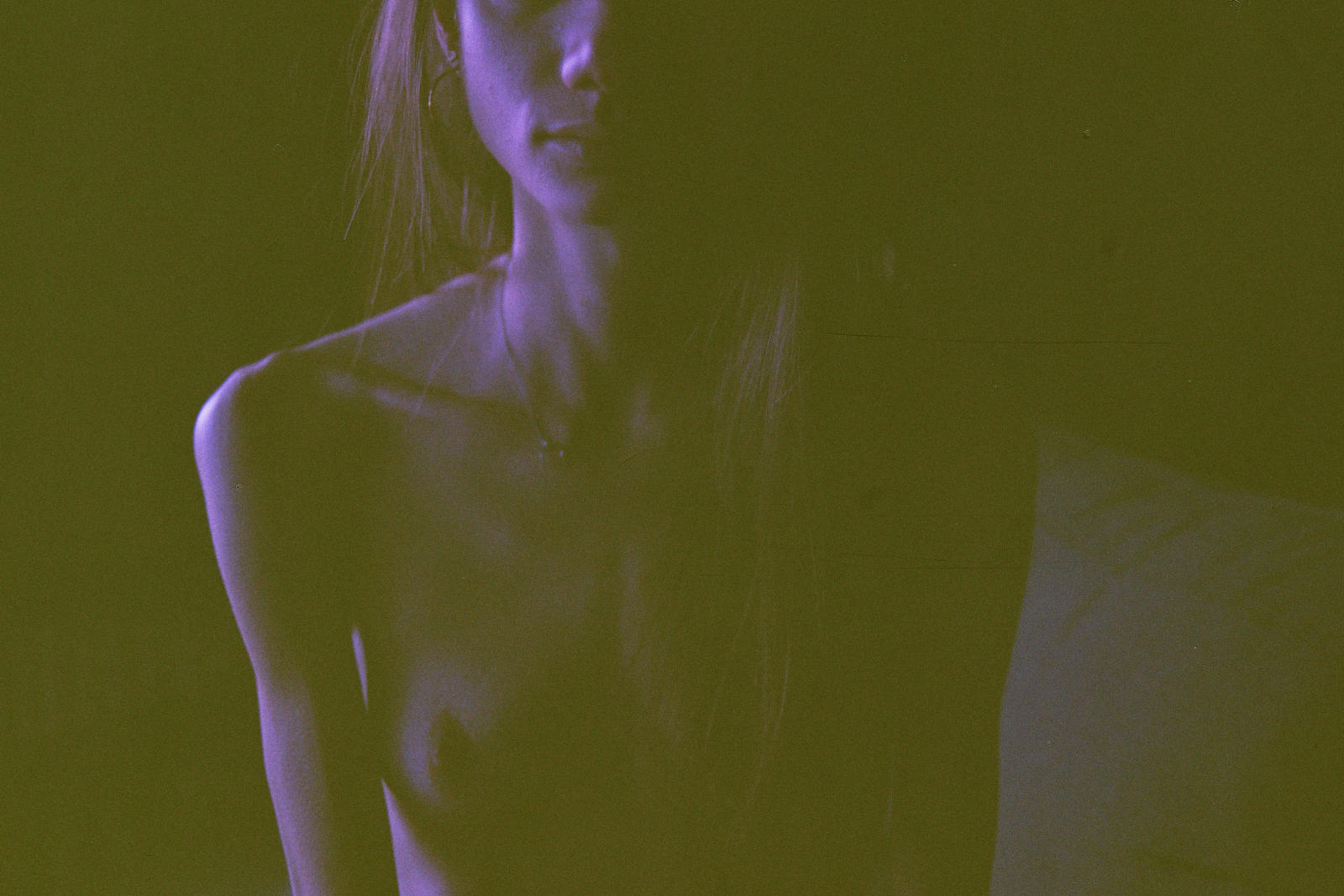
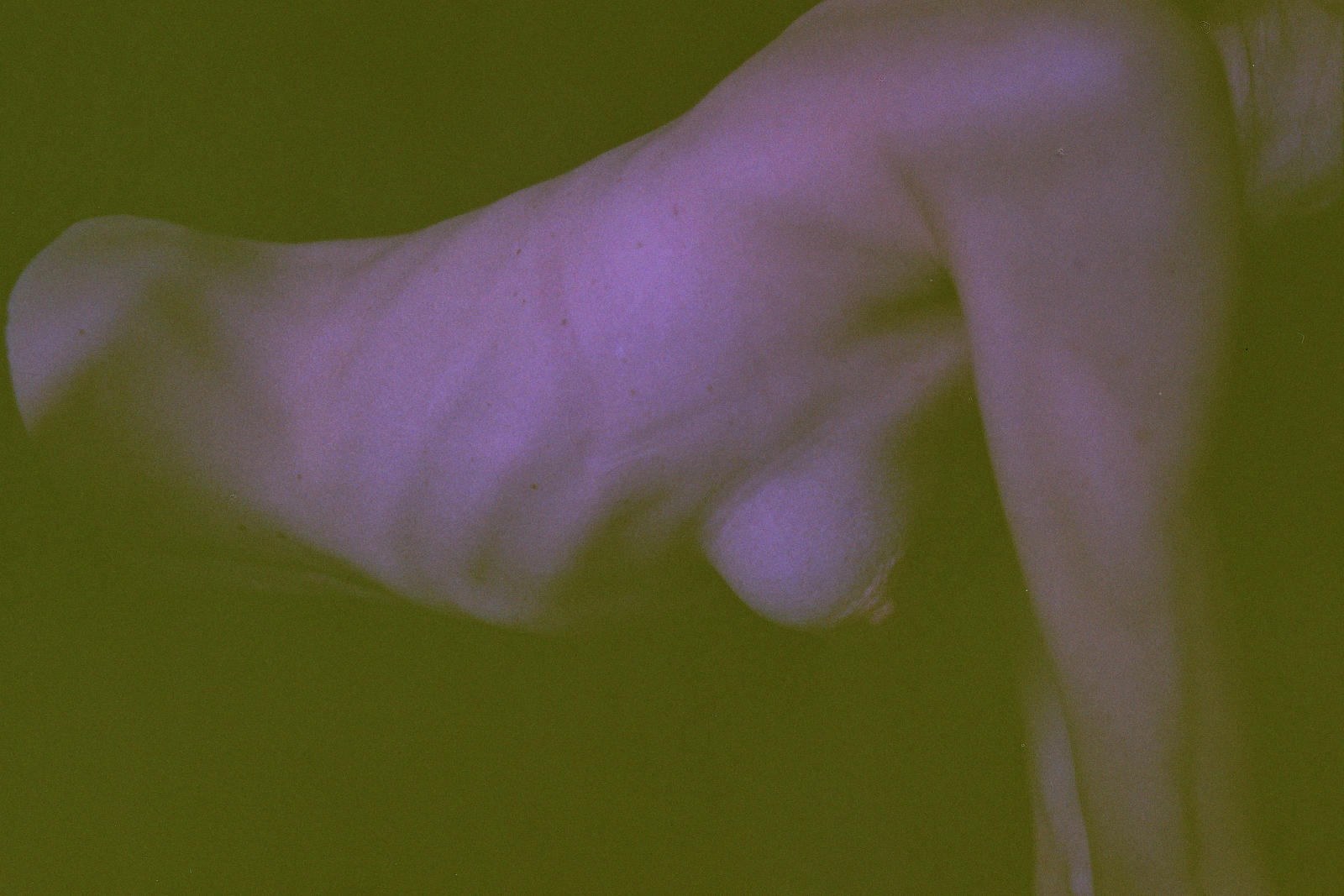
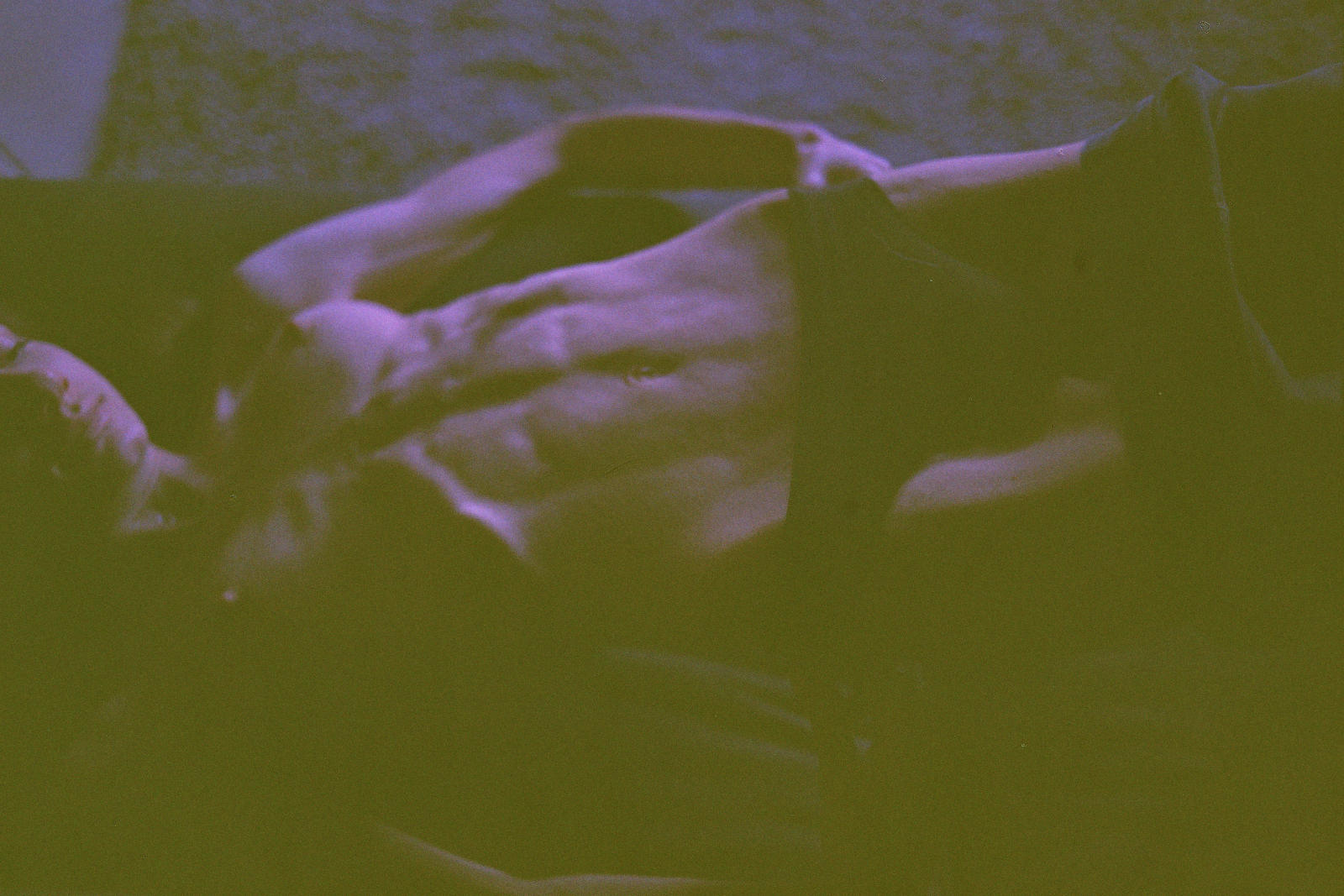
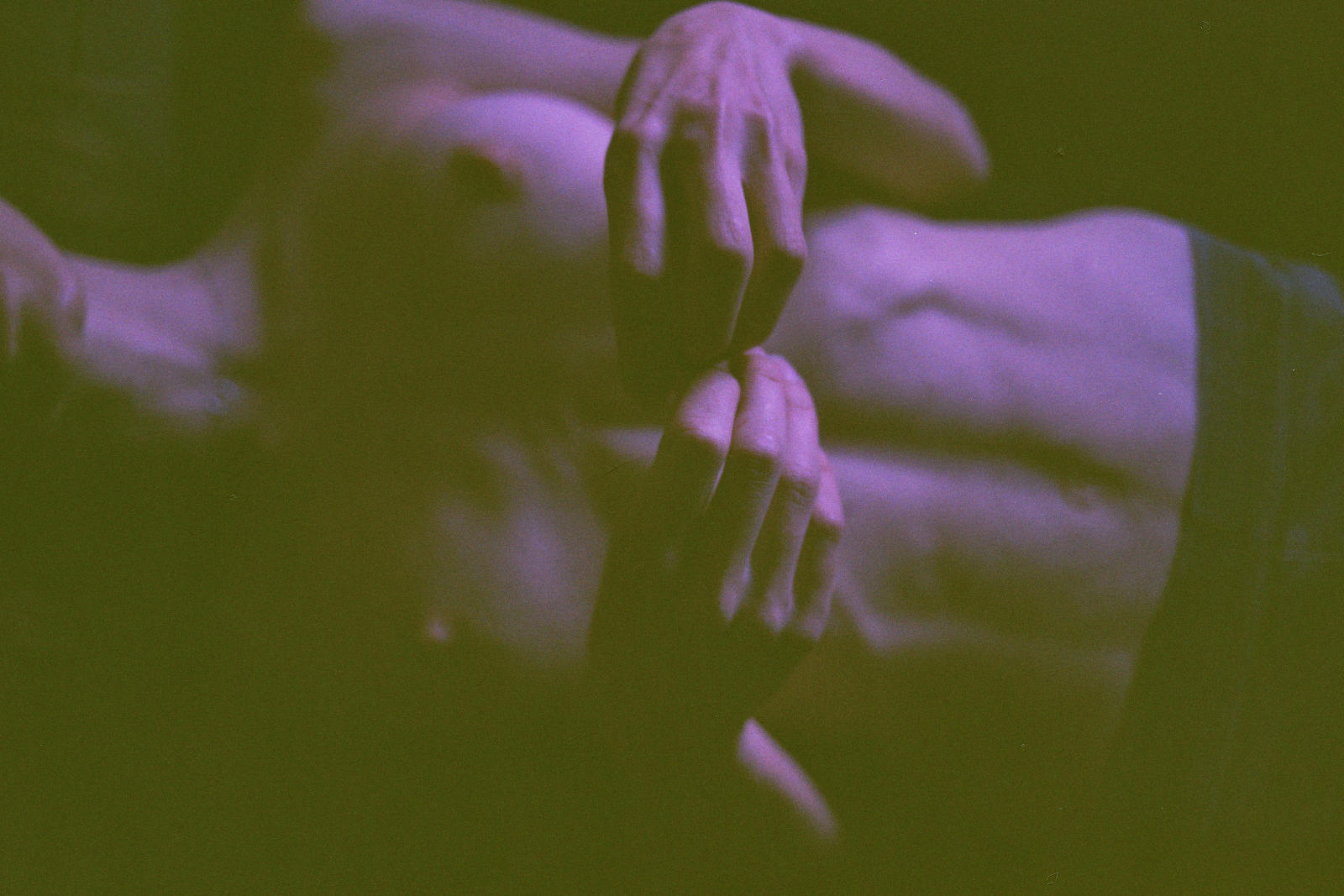
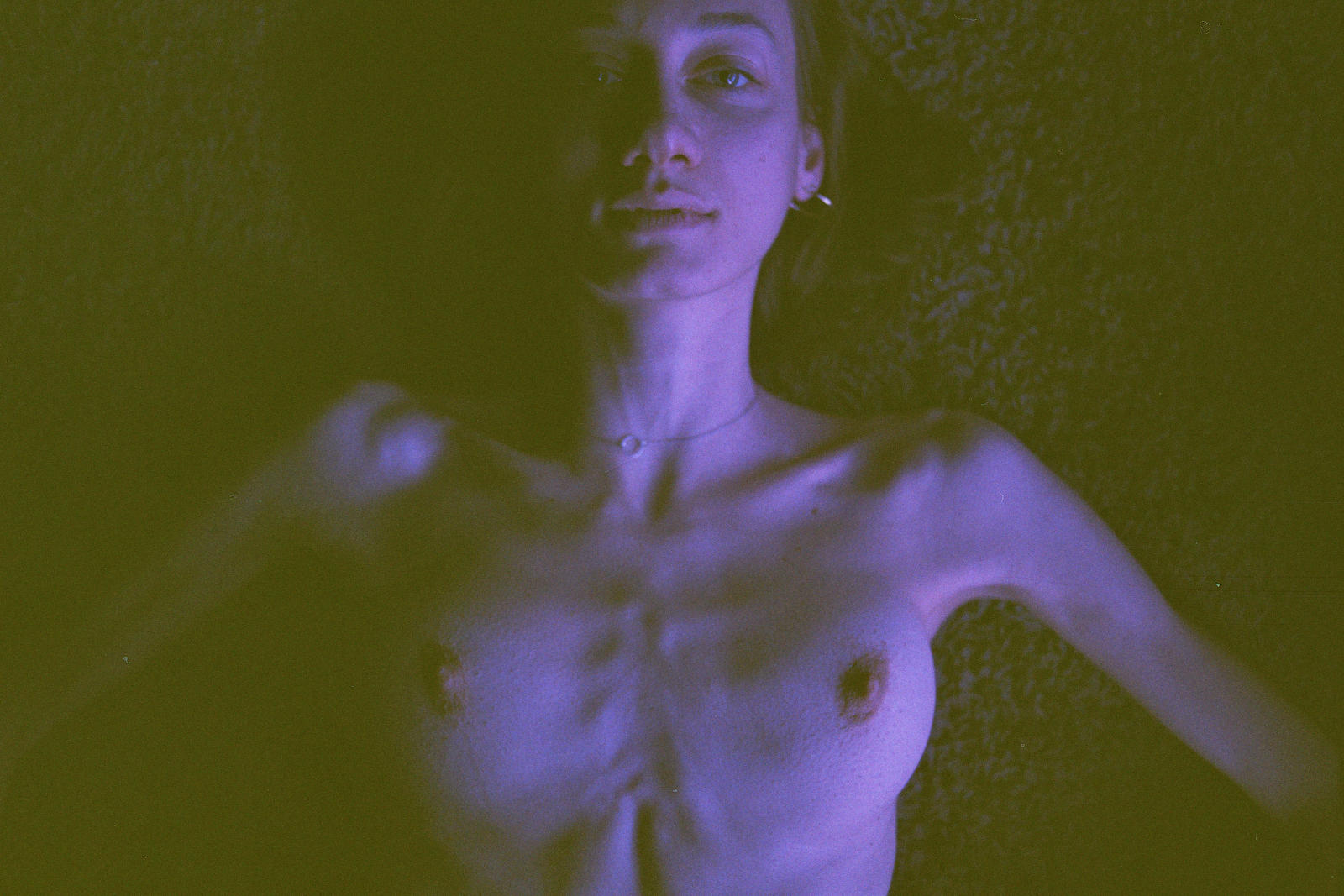
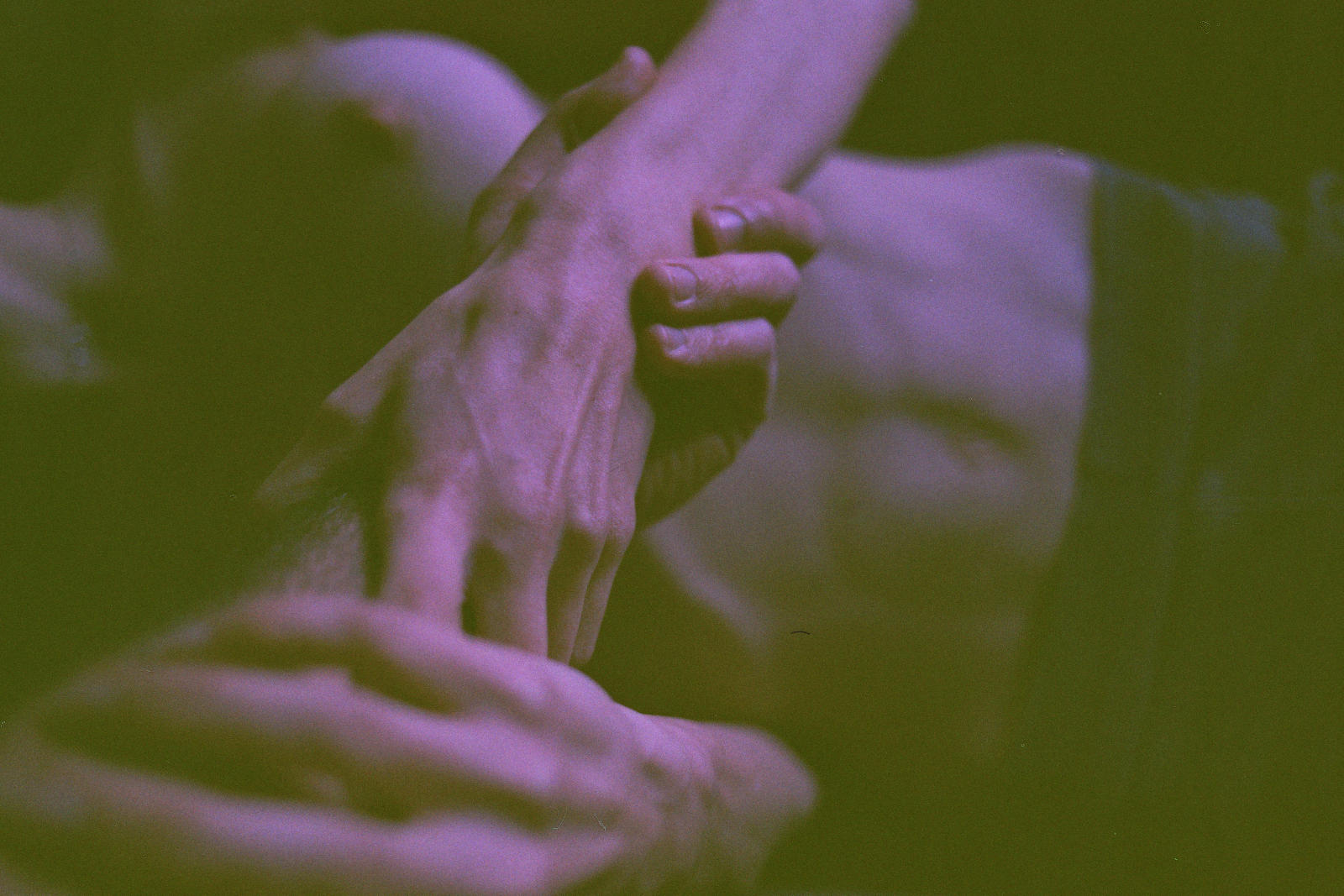
In Una donna sposata (pellicola del 1964) Jean-Luc Godard mette in scena il desiderio. Per farlo, e non violare la rigida etica calvinista a cui il regista era votato, sceglie il linguaggio del frammento montando una sequenza di fotogrammi che evocano l’erotismo senza narrarlo.
Le immagini di lundesnombreux hanno in comune con Godard lo stesso linguaggio. La descrizione del corpo – e con il corpo il desiderio – è affidata soprattutto alle mani: mani che stringono, che afferrano per portare in salvo, che sfiorano lo spazio intimo di un letto o la superficie nuda di un corpo. Ulteriore dettaglio che lega l’estetica del fotografo al regista francese è il polso maschile che, in molti scatti, appare con indosso un orologio: orologio che si trasforma in simbolo, e che rende ancora più nuda la modella ritratta, assecondando un gioco di richiami che trasporta nella contemporaneità una certa immagine di erotismo mutuato dalle pellicole in bianco e nero del dopoguerra.
Fotografare significa […] appropriarsi della cosa che si fotografa, scrive Susan Sontag in “Sulla fotografia” […] Ciò che si scrive su una persona o su un evento è chiaramente un’interpretazione, come lo sono i rendiconti visivi fatti a mano, quali la pittura e il disegno. Le immagini fotografate invece non sembrano tanto rendiconti del mondo, ma pezzi di esso, miniature di realtà.
La fotografia di lundesnombreux procede nello stesso modo, isolando brandelli di realtà e offrendoli alla vista. Il fotografo non si serve solo dell’occhio ma utilizza il contatto: soggetto dell’immagine non è infatti la donna, ma l’istante in cui avviene l’incontro tra colui che osserva e colei che è osservata; un momento che diventa tensione, poiché l’incontro con l’Altro non è mai davvero possibile: noi, come lundesnombreux, sappiamo infatti che il corpo che nello spazio-tempo della sessione fotografica si è svelato non potrà che ricadere nel mistero inaccessibile che racchiude. In quello spazio di distanza e vuoto da cui ha origine ogni desiderio.
(di Livia Del Gaudio)
In A married woman (1964) Jean-Luc Godard brings the desire on stage. He chooses a fragmented language and mounts a sequence of photograms which calls forth erotism without telling it. As such, he can preserve the observance of the strict Calvinist ethic to whom he devoted himself.
The images of lundesnombreux share the same language of Godard. Above all, the hands are entrusted with the description of the body – and of desire, together with the body: hands which squeeze and have a hold on something in order to save it, hands which touch the intimate space of a bed or the naked surface of a body. Another detail binding the esthetic of the photographer to the French director is the male wrist, which often appears to wear a watch: a watch which transforms itself into a symbol and denudes even more the portrayed model, playing a game of references which brings a certain image of erotism into the contemporary, borrowed from the black and white films of the after war.
To photograph is to appropriate the thing photographed, writes Susan Sontag in “On photography”. […] What is written about a person or an event is frankly an interpretation, as are handmade visual statements, like paintings and drawings. Photographed images do not seem to be statements about the world so much as pieces of it, miniatures of reality that anyone can make or acquire.
lundesnombreux’s photography proceeds in the same way, isolating shreds of reality and giving them to the sight. The photographer doesn’t use only the eye, but he also uses the touch: in fact, the subject of the image isn’t the woman, but the moment when the observer meets the observed. The moment becomes tense, as the meeting with the Other is never really possible; as lundesnombreux, we know that the body revealed itself in the space-time of the photographic session and it can’t help but fall into the mystery. In that space of distance and emptiness where each desire has its origin.
(by Livia Del Gaudio | translated by Aurora Dell’Oro)
lundesnombreux comincia la sua attività fotografica nel 1986, con foto ricordo famigliari e sprecando rullini sui porti. In pochi anni acquisisce la competenza tecnica per essere speso come fotografo all’interno dell’attività imprenditoriale di famiglia. Nel ’96, dopo la morte del padre, sospende ogni attività fotografica per una decade. Nel 2006 riprende a produrre collaborando con due agenzie e sviluppando nuove competenze in ambito digitale, senza abbandonare la produzione chimica. Nel 2009 alcuni fortunati incontri con persone che lasciano grande libertà autoriale indicano la via. La libera ricerca di lundesnombreux si basa da allora sull’epochè. Uno spazio all’interno del quale le parti desiderano incontrarsi sospendendo il giudizio proprio e altrui. lundesnombreux espone nel 2012 al Besate Photofestival e nel 2019 alla seconda edizione di Other Identity. Nel 2020, la scure della censura social cade su quasi tre lustri di attività. A seguito di questo evento l’autore fonda il collettivo Patient Wolves . Il collettivo ha come obiettivo la libertà del linguaggio autoriale e si basa su soli tre cardini: fotografia analogica, epochè, consenso. I lupi pazienti attualmente producono una fanzine trimestrale, dei momenti formativi e dei momenti di produzione condivisa (patientwolves.org). L’espressione francese l’un des nombreux, traducibile come l‘uno dei tanti, ha per l’autore ha due significati, uno palese, l’altro occulto al pubblico. lundesnombreux si scrive in minuscolo.
lundesnombreux begins his photographic activity in 1986 taking souvenir photos of his family and wasting rolls by the harbours. In a few years he gains the technical competence needed to be taken as a photographer into the family business. In 1996, after his father’s death, he takes a break from photography which will last ten years. In 2006 he gets back to his activity collaborating with two agencies and developing new abilities in the digital area, without neglecting chemical production. In 2009 some lucky meetings with people who give great authorial freedom lead the way. The free research of lundesnombreux has been based on the epochè since then. A space where the parts want to meet each other without judging. lundesnombreux holds an exhibition in 2012 at Besate Photofestival and in 2019 at the second edition of Other Identity. In 2020 the blade of social censorship falls upon 15 years of activity. Following this outcome, the author founded the collective Patient Wolves. The collective aims to free the authorial language and is based on only three rules: analogue photography, epochè, consent. These days the patient wolves are working on a trimestral fanzine, on some training and shared production moments (patientwolves.org). The French expression l’un des nombreux, which can be translated as one among the many, has two meanings for the author. One is self-evident, the other one is hidden to the public. lundesnombreux is written in lower-case letters.
1 Comment